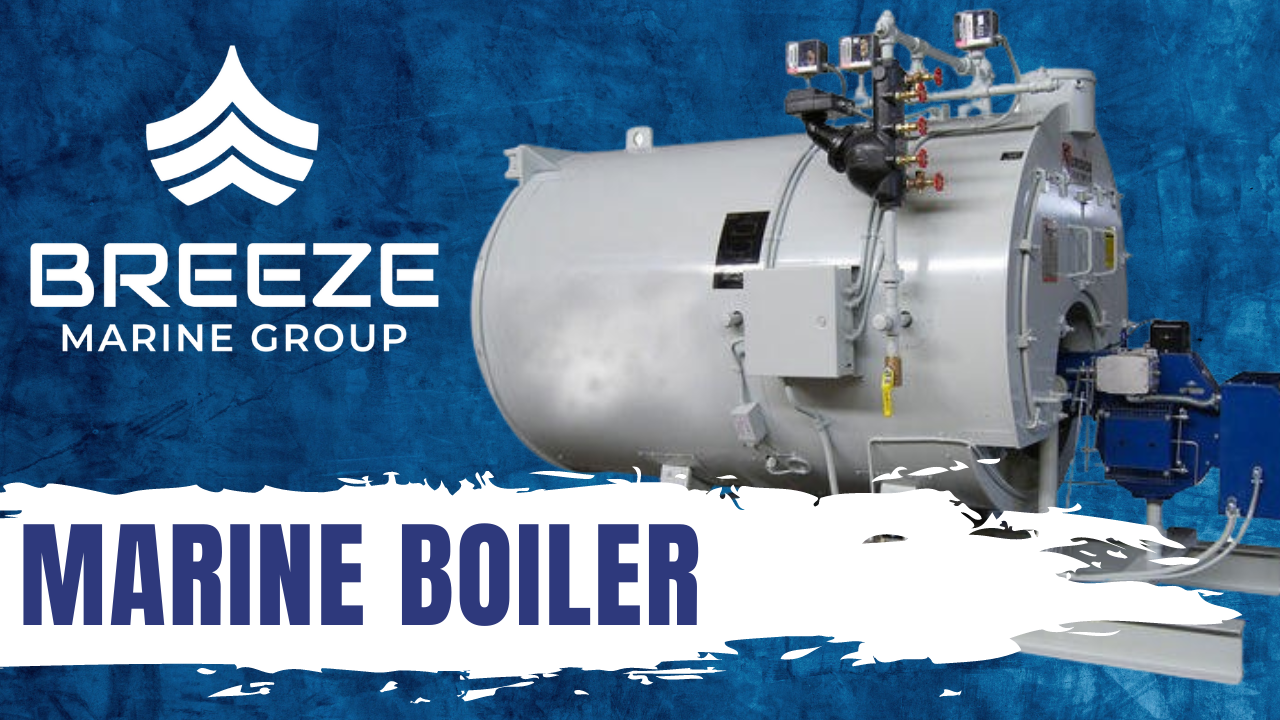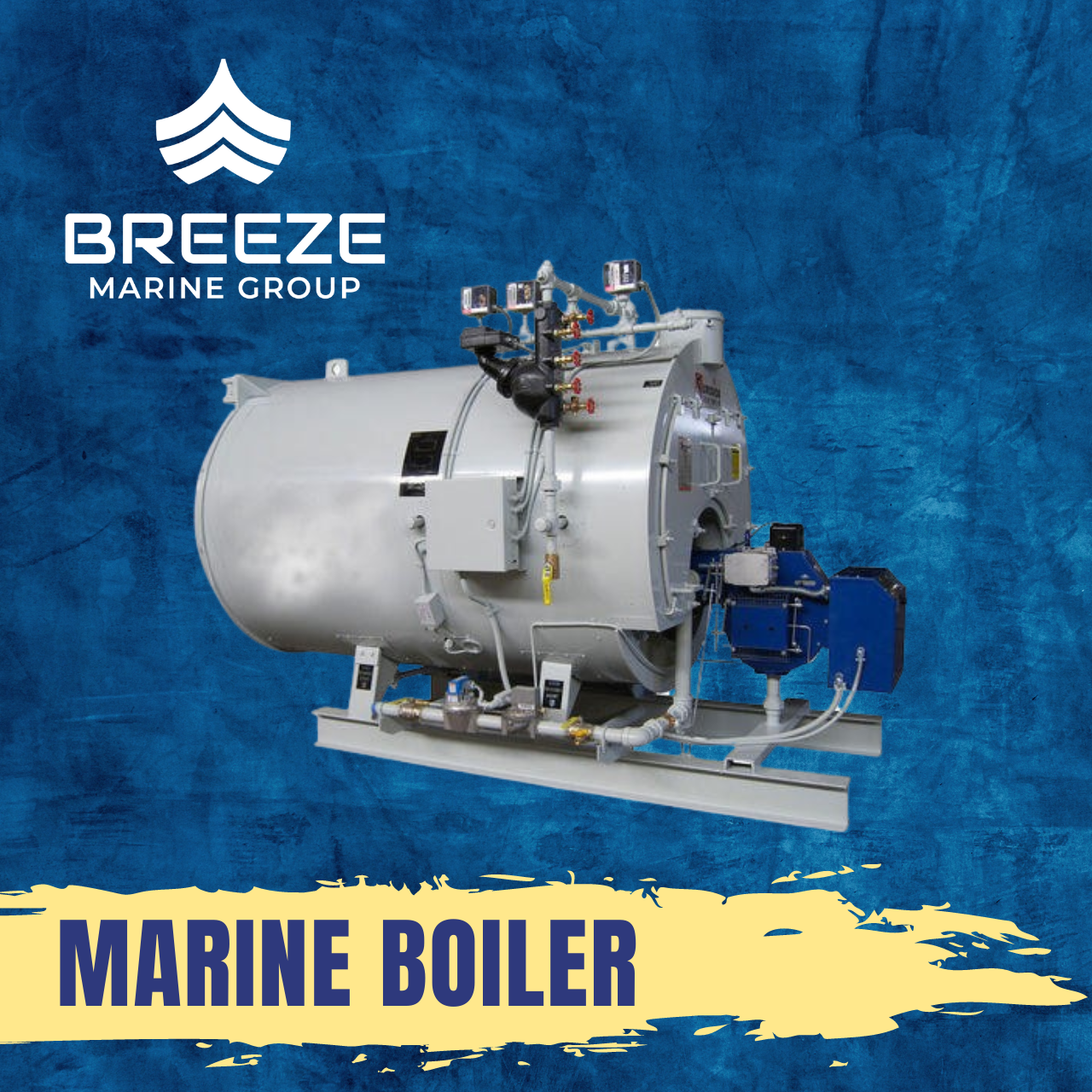Understanding the Role of Boilers on Ships
A marine boiler is a key part of a ship. Boilers on ships make steam for many uses. They help with the ship’s movement and other important tasks. Knowing about the different types and uses of these boilers helps keep the ship running smoothly.
Boilers provide the necessary power for propulsion and other vital operations on a ship. Without boilers, a ship would not have the steam needed to drive its engines or generate electricity. They are essential for a ship’s daily functions and overall performance. By generating steam, they ensure that the ship can travel long distances and carry out its tasks efficiently.
In addition to propulsion, boilers support various auxiliary systems on a ship. These include heating, cooking, and cleaning, which are crucial for the comfort and well-being of the crew. Boilers also help maintain the ship’s operations during emergencies by providing backup power and heat.
Types of Boiler Systems in Ships

Ships use different types of boilers, with the two main types being main boilers and auxiliary boilers. Each type has its own features and uses, making them important for different tasks on a ship.
Main Boilers
Main boilers provide steam for the ship’s main engines. This steam is needed to move the ship. These boilers are built to handle the hard work of long sea trips.
Main boilers generate high-pressure steam, which drives the ship’s turbines and propellers. This allows the ship to move through the water. Main boilers are usually large and powerful, producing significant amounts of steam to meet the demands of the ship’s main engines.
In addition to propulsion, main boilers can supply steam for other essential systems on the ship, such as pumps and compressors. By supporting these systems, main boilers ensure the ship functions smoothly and efficiently.
Auxiliary Boilers
Auxiliary boilers on ships make steam for other uses. They help with heating, power generation, and other tasks. These boilers are smaller than main boilers but are just as important for the ship’s operations.
Auxiliary boilers serve multiple purposes on a ship. They provide steam for heating systems, keeping the crew quarters and other areas warm, especially in cold weather. This is crucial for the comfort and safety of the crew during long voyages. Auxiliary boilers also supply steam for cooking and cleaning, ensuring that the ship’s daily operations run smoothly.
Another important function of auxiliary boilers is power generation. They provide steam to drive generators that produce electricity for the ship. This electricity powers lights, navigation systems, communication equipment, and other essential devices. By generating power, auxiliary boilers help maintain the ship’s overall functionality and support its various operations.
How Boiler Systems Work on Ships
A boiler system on a ship turns water into steam, which is then used for various jobs on the ship. The system has several parts, each playing a vital role in making and moving the steam.
Parts of a Boiler System
- Boiler Drum: This is where water and steam are separated.
- Burners: These mix fuel and air to create heat.
- Economizer: This heats the feedwater before it goes into the boiler.
- Superheater: This makes the steam even hotter than its boiling point.
Each part of the boiler system has a specific function. The boiler drum is where water turns into steam. Burners generate heat by burning fuel, heating the water in the boiler drum. The economizer preheats the feedwater using leftover heat from the exhaust gases, improving the system’s efficiency. The superheater further heats the steam, making it suitable for high-temperature applications.
Taking Care of Ship Boilers
Taking good care of ship boilers is important. Regular checks, cleaning, and repairs keep them working well and lasting longer.
Routine Inspections
Regular checks help find problems early. Look for leaks, rust, and other signs of damage.
Routine inspections are essential to keep the boilers in good condition. Checking for leaks, rust, and other signs of damage can help find problems before they become serious. Regular inspections ensure the boilers are operating efficiently and safely. By finding and fixing problems early, routine inspections can help extend the life of the boilers and maintain their performance.
Checking the various components of the boiler system is also important. This includes the boiler drum, burners, economizer, and superheater. Ensuring these parts are working properly helps maintain the overall efficiency and effectiveness of the boiler system.
Cleaning and Repairs
Cleaning the boiler parts prevents soot buildup. Regular repairs ensure all parts work well, keeping the boiler efficient.
Cleaning the boiler parts prevents soot buildup, which can reduce the system’s efficiency. Regular cleaning helps maintain the boilers’ performance and ensures they operate at their best. Regular repairs keep all parts of the boiler system functioning properly. Fixing issues promptly prevents further damage and maintains the boilers’ efficiency.
Regular maintenance also includes checking and replacing worn or damaged parts. This ensures the boiler system operates safely and efficiently. By keeping the boilers in good condition, regular cleaning and repairs extend their life and maintain their performance.
Professional Help
Sometimes, expert help is needed for complex repairs. Professionals can check and fix the boiler thoroughly, keeping it in good shape.
While routine inspections and maintenance can keep the boilers in good condition, sometimes expert help is needed for more complex repairs. Professional maintenance services provide thorough inspections and repairs, ensuring the boilers are in optimal condition. Experts also offer valuable advice and recommendations for maintaining the boiler system and preventing future issues.
Hiring professional maintenance services ensures the boiler system operates safely and efficiently. Professionals provide thorough inspections and repairs, maintaining the boilers’ performance and extending their life. This ensures the ship’s boiler system is in good shape and ready to support the ship’s operations.
Advances in Boiler Technology
New technologies make boilers more efficient and eco-friendly. Better designs, materials, and control systems improve boiler performance and reduce harm to the environment.
High-Efficiency Boilers
Modern boilers use less fuel and produce fewer emissions. They use advanced techniques and materials to work better.
High-efficiency boilers use less fuel and produce fewer emissions, making them more environmentally friendly. These boilers use advanced combustion techniques and materials to achieve higher efficiency and better performance. Reducing fuel consumption helps lower operating costs and the ship’s environmental impact.
High-efficiency boilers also produce fewer emissions, helping ships comply with environmental regulations. These boilers have advanced emission control systems that reduce the release of harmful pollutants into the air. Using high-efficiency boilers allows ships to minimize their environmental impact and operate more sustainably.
Automated Control Systems
Automation allows precise control of boilers. Automated systems can adjust fuel and air, monitor temperatures, and detect problems, improving efficiency and safety.
Automated control systems are a key advancement in boiler technology. These systems allow precise control of the boiler system, improving efficiency and safety. Automated systems adjust the fuel and air mixture, monitor temperatures, and detect potential issues, ensuring the boiler system operates optimally. Automation enhances the boiler system’s performance and reduces the risk of problems.
Automated control systems also improve safety by providing real-time monitoring and alerts. These systems detect issues like high temperatures, low water levels, and fuel leaks, allowing the crew to respond quickly and prevent accidents. Using automated control systems ensures the boiler system operates safely and efficiently, supporting the ship’s overall performance.
Eco-Friendly Solutions
New boiler solutions focus on reducing emissions and using cleaner fuels. Technologies like scrubbers and selective catalytic reduction (SCR) systems help ships meet strict environmental rules.
Eco-friendly boiler solutions reduce emissions and use cleaner fuels, helping ships comply with strict environmental regulations. Technologies like scrubbers and selective catalytic reduction (SCR) systems reduce harmful pollutants’ release into the air. Scrubbers remove sulfur oxides from the exhaust gases, while SCR systems reduce nitrogen oxides, both significant contributors to air pollution.
Using these eco-friendly solutions minimizes the environmental impact and helps ships operate sustainably. These technologies help ships meet strict environmental regulations and reduce their emissions, contributing to marine ecosystems’ protection and air quality. Adopting eco-friendly boiler solutions ensures ships operate in an environmentally responsible manner.
Conclusion
Marine boilers are essential for the operation of ships, providing steam for propulsion, power generation, and various auxiliary services. Understanding the different types of boilers, their functions, and maintenance requirements is crucial for efficient ship operations. With advancements in technology and a focus on sustainability, the future of marine boilers looks bright, promising more efficient and eco-friendly solutions.
By maintaining and operating boiler systems effectively, ships can achieve optimal performance, ensuring safe and efficient voyages across the seas.
FAQ
Are boilers still used in ships?
While less common now due to diesel engines, some navy vessels and older commercial ships still use this method. Heating: These boilers are essential for heating purposes. They generate steam that can heat fuel oil to keep it at the optimal viscosity for burning.
Do cruise ships have boilers?
Yes, cruise ships have boilers. They are used for generating steam, which is essential for propulsion, power generation, and providing heat for various onboard services and amenities.
Which fuel is used in marine boiler?
Marine boilers typically use heavy fuel oil (HFO), marine diesel oil (MDO), or liquefied natural gas (LNG) as fuel. The choice of fuel depends on the type of boiler and the ship’s operating conditions.
Does a ship have a boiler room?
Yes, a ship has a boiler room where the boilers are installed and operated. The boiler room houses the boilers, burners, and associated equipment needed to generate steam for the ship’s various systems.
What type of boilers did the Titanic have?
The Titanic had 29 Scotch marine boilers, which were fire-tube boilers. These boilers were used to generate steam for the ship’s propulsion and other auxiliary systems.
What is the difference between a pressure vessel and a boiler?
A boiler generates steam by heating water, whereas a pressure vessel is designed to hold gases or liquids at a pressure significantly different from the ambient pressure. Boilers produce and use steam, while pressure vessels store and contain it.
Need Expert Marine Boiler Solutions? Contact Breezemarine Group!
For top-notch marine boiler solutions and advanced marine engineering support, contact Breezemarine Group Ltd. Visit www.breezemarine.eu, call +372 682 5437, or email sales@breezemarine.eu.
